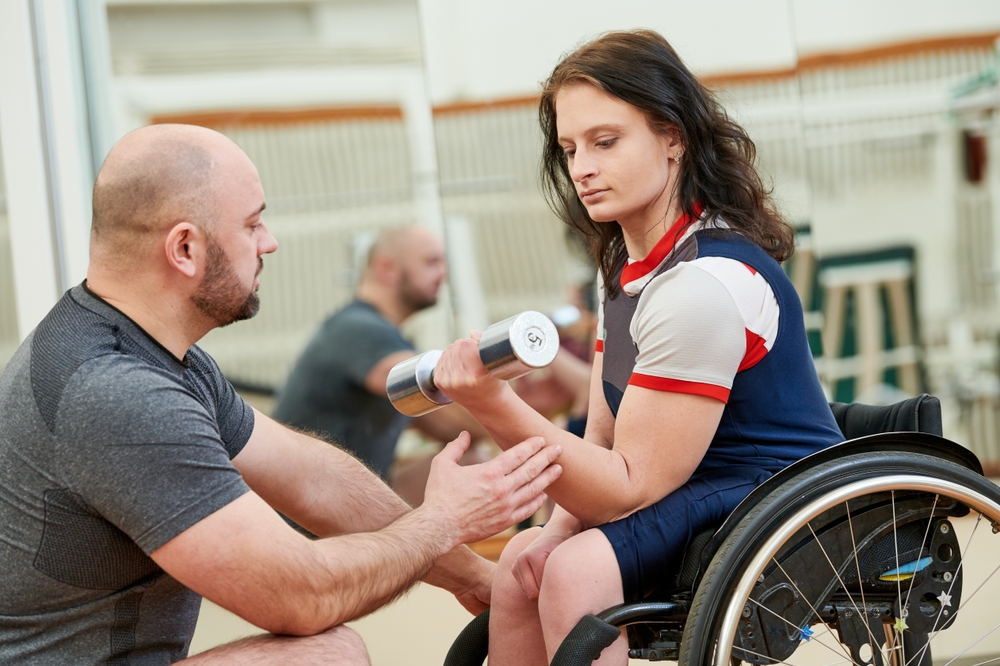Make an Appointment
Down syndrome is a genetic disorder that affects an individual's physical and cognitive development. Assistive technology and allied health services, such as those provided by Physio Inq—a national NDIS provider offering mobile and in-home services across Australia—play a crucial role in empowering those with Down syndrome by enhancing their communication, learning, and independent living skills. This article will explore various assistive technologies, the allied health services offered by Physio Inq, and their positive impact on children and students with Down syndrome while answering common questions related to their use. The following table of contents outlines the topics that will be covered throughout the article.
Table of Contents
I. Communication Technologies for Down Syndrome
II. Educational Technologies for Students with Down Syndrome
III. Motor Skills Technologies for Down Syndrome
IV. Choosing the Right Assistive Technology
V. Physio Inq's Allied Health Services for Down Syndrome
VI. Accommodating Students with Down Syndrome in the Classroom
Communication Technologies for Down Syndrome
Effective communication is essential for individuals with Down syndrome to build relationships, express their needs, and participate fully in society. Assistive technology can significantly enhance communication abilities for those with Down syndrome by providing tools and devices that cater to their unique needs.
Augmentative and Alternative Communication (AAC) devices are designed to support individuals who have difficulty with speech or language. These devices can range from low-tech options such as picture boards to high-tech systems with voice output. tobiidynavox & prentrom are just some of the providers who provide a great range of ACC devices. By providing alternative means of communication, AAC devices can help individuals with Down syndrome express themselves more effectively and participate in social interactions.
Tailoring communication strategies to individual needs is essential for successful communication with someone with Down syndrome, as discussed in our article on How to Communicate with Someone with Down Syndrome.
High-tech assistive technologies can play a crucial role in improving speech production and cognitive skills for children with Down syndrome. These tools can be particularly useful in addressing speech and language difficulties associated with the disorder. For example, Proloquo2Go is a popular communication app that uses symbols and synthesized speech to help individuals with speech production difficulties express themselves.
Research has shown that using technology to support speech and cognition can lead to significant improvements in communication abilities for individuals with Down syndrome
High-tech communication devices offer a range of features and capabilities that can make tasks easier to complete and support learning the alphabet and other key communication skills for individuals with Down syndrome. These technologies can also be integrated with existing devices, such as smartphones and tablets, for seamless communication support.
It's essential to consider accessibility and user-friendliness when selecting high-tech assistive technologies, as these features can significantly impact the effectiveness of the device as pointed out in Christin Engel study
Educational Technologies for Students with Down Syndrome
Assistive technology can have a profound impact on the educational outcomes of students with Down syndrome by addressing cognitive and learning challenges.Interactive Learning Programs - Interactive learning programs are designed to engage students with Down syndrome through multimedia, hands-on activities, and real-time feedback. These programs can help students develop essential cognitive skills and make learning more enjoyable and accessible. Examples of interactive learning programs include BrainPOP and Starfall, which offer a range of engaging, educational content tailored for students with learning disabilities. Research has shown that interactive learning programs can have a positive impact on cognitive ability and academic performance for students with Down syndrome.
Text-to-Speech and Speech-to-Text Software - Text-to-speech and speech-to-text software can make reading and writing tasks more manageable for students with Down syndrome. Text-to-speech tools, such as NaturalReader can read text aloud, helping students with reading comprehension and pronunciation. Speech-to-text software, like Dragon NaturallySpeaking, allows students to dictate their thoughts, enabling them to express themselves more easily and overcome writing challenges.
Studies have shown that text-to-speech and speech-to-text software can significantly improve reading and writing skills for students with Down syndrome
Tailored Curriculum Software - Tailored curriculum software is designed to provide individualized and adaptable learning experiences for students with Down syndrome. These programs, such as the Unique Learning System, cater to the specific needs and abilities of students with learning disabilities, ensuring they receive the appropriate support and resources.
Research on the effectiveness of tailored curriculum software has shown that it can improve academic performance for students with Down syndrome.
Motor Skills Technologies for Down Syndrome
Developing fine and gross motor skills is crucial for individuals with Down syndrome to perform daily tasks and participate in various activities. Assistive technologies can significantly enhance motor skills by providing tools specifically designed to support and develop these abilities.
Adaptive Writing Tools
Adaptive writing tools can improve fine motor skills and support handwriting development for individuals with Down syndrome. These tools, such as Pencil Grips, are designed to make writing tasks more manageable by providing additional support and control during the writing process.
Research has shown that adaptive writing tools can positively impact fine motor skills and academic performance for students with Down syndrome
Modified Utensils for Eating
Modified utensils for eating can promote independence and improve motor skills for individuals with Down syndrome. Specialised utensils, like Easy-Grip Utensils, are designed to support self-feeding and make eating tasks more manageable.
The use of adaptive utensils can help individuals with Down syndrome build self-confidence and enhance their overall quality of life and is further reinforced by Am J Physiol Gastrointest Liver Physiol in their research article on Human and mouse tissue-engineered small intestine both demonstrate digestive and absorptive function.
Specialised Keyboards and Computer Mice
Specialised keyboards and computer mice can help students with Down syndrome develop essential computer skills and navigate digital environments more easily. These devices, such as BigKeys Keyboards and Trackball Mice, are designed with larger keys or alternative input methods to make computer use more accessible and comfortable for individuals with fine motor challenges.
Recent studies have shown that using specialised keyboards and computer mice can improve computer skills and overall learning experiences for students with Down syndrome
Choosing the Right Assistive Technology
Selecting the appropriate assistive technology for an individual with Down syndrome is crucial to ensure its effectiveness and overall impact on their development.
Assessing Individual Needs
A thorough assessment of an individual's unique needs, abilities, and goals is essential when choosing the right assistive technology. This process may involve collaboration with educators, therapists, and the individual with Down syndrome to identify the most suitable tools and devices.
Trial and Evaluation
Trying out different assistive technologies and evaluating their effectiveness is an essential step in the selection process. It's crucial to consider the individual's comfort, ease of use, and adaptability when trialing different tools and devices.
Ongoing Support and Training
Providing ongoing support and training for individuals with Down syndrome and their families is crucial to ensure the effective use of assistive technology. This support may include regular check-ins, training sessions, and access to additional resources to help users get the most out of their devices.

Physio Inq's Allied Health Services for Down Syndrome
Physio Inq offers a range of allied health services to support individuals with Down syndrome in developing essential skills and improving their overall well-being. These services include physiotherapy, occupational therapy, speech pathology, and exercise physiology.
Physiotherapy
Physiotherapy can help individuals with Down syndrome improve their physical fitness, mobility, and overall well-being. Physio Inq's physiotherapy services focus on developing strength, coordination, and balance while addressing any physical limitations or challenges.
Occupational Therapy
Occupational therapy supports individuals with Down syndrome in developing essential daily living skills and achieving greater independence. Physio Inq's occupational therapists work with clients to improve fine motor skills, self-care abilities, and sensory processing to enhance overall quality of life.
Speech Pathology
Speech pathology is vital for addressing communication challenges faced by individuals with Down syndrome. Physio Inq's speech pathology services focus on supporting speech development and communication skills, empowering those with Down syndrome to express themselves effectively and participate in social interactions.
Exercise Physiology
Exercise physiology offers numerous benefits for individuals with Down syndrome, including improved physical fitness, motor skills, and overall well-being. Physio Inq's exercise physiology services contribute to a healthier lifestyle for those with Down syndrome, ensuring they have the support and resources necessary to thrive.
Accommodating Students with Down Syndrome in the Classroom
Creating an inclusive and supportive learning environment is essential for students with Down syndrome to succeed academically and socially.Differentiated Instruction and Curriculum Adaptation
Differentiated instruction and curriculum adaptation are crucial for meeting the unique needs of students with Down syndrome. Effective implementation of these approaches involves modifying teaching methods, materials, and assessments to cater to individual strengths and weaknesses. Intervention Central is a great resource for teachers alike to refer to.
Implementing Assistive Technologies
Incorporating assistive technologies into the classroom can significantly support students with Down syndrome. Ensuring these technologies are effectively integrated and accessible to students is vital for their overall success and engagement in the learning process.
Collaborating with Allied Health Professionals
Collaborating with allied health professionals, such as Physio Inq's team of therapists and experts, can help educators create comprehensive support plans for students with Down syndrome. These professionals can provide valuable insights and resources to address the specific needs of each student effectively.
Promoting Social Inclusion
Promoting social inclusion in the classroom is essential for students with Down syndrome to develop strong relationships and feel supported by their peers. Encouraging inclusive activities and fostering a sense of belonging can have a profound impact on the overall well-being and academic success of students with Down syndrome.
Conclusion
Assistive technology innovations and allied health services play a crucial role in empowering individuals with Down syndrome to develop essential communication, learning, and motor skills. Physio Inq's range of mobile and in-home allied health services, available across Australia as a national NDIS provider, offer comprehensive support for individuals with Down syndrome and their families. By embracing these technologies and services, we can help individuals with Down syndrome achieve their full potential and enhance their overall quality of life.
For more information on Physio Inq's allied health services across Australia, please don't hesitate to contact our wonderful client services team at 1300 731 733. They are more than happy to help you and your family find the support you need
Date Published: Wednesday, March 29, 2023
Locate a NDIS Occupational Therapy
Service Near me
Get the experience & convinence you deserve to support your or a loved one's allied health needs.
Our NDIS Occupational Therapy team are currently serving & taking appointments in the following states and regions in Australia:
Need to get into direct contact with ur Client Services team? We're all ears. Call our team directly on 1300 731 733








